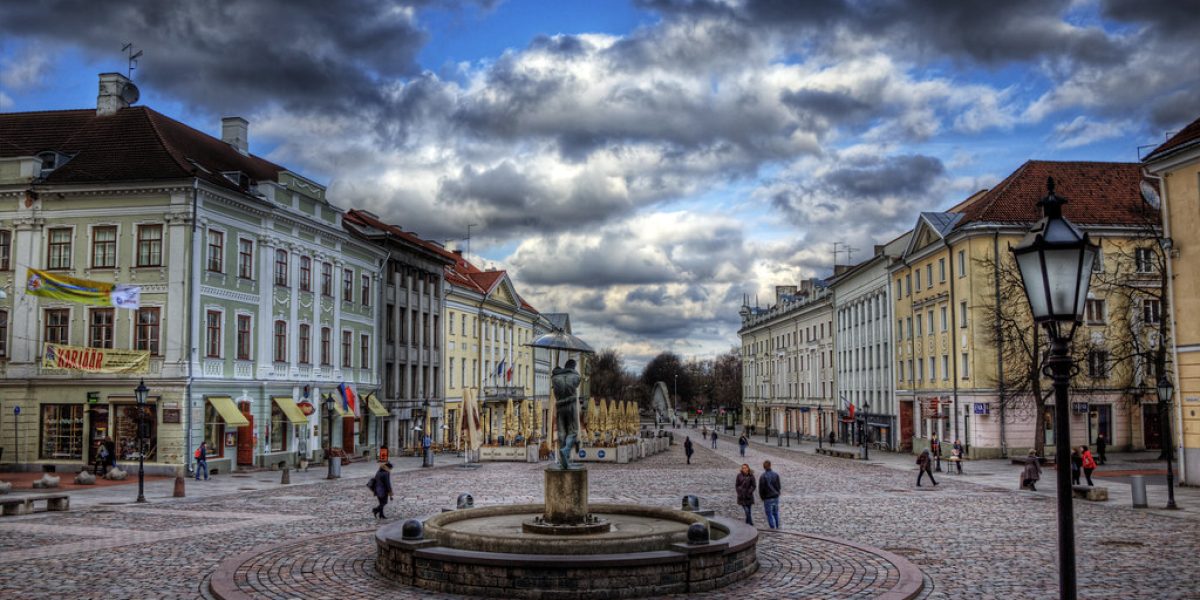Subscribe to our joint NEWSLETTER for
EUTROPIAN &
COOPERATIVE CITY MAGAZINE



Millions of underused consumer goods, such as leisure equipment, tools or home appliances, are hidden in European households, contributing to financial waste, resource depletion, ecosystem destruction, climate change and a growing waste crisis while being rarely used (i.e. a drill is used on average for only 12 mins in its lifetime). Individual ownership patterns lead to many issues:
While (often extractive, so-called) sharing economy initiatives have been emerging in mobility and housing, goods receive low political priority, despite their significant impact. This is where GOOD CITIES makes a difference.

Eutropian will support project partners in GOOD CITIES in the following ways:


Municipality of Újbuda, Budapest
Újbuda has been known for its vibrant cultural life, green areas and community spirit in close proximity to the city centre; this is an ideal environment to promote sharing economy practices. It is also home to two major Hungarian universities and countless NGOs and SMEs, many of which are involved in architecture, design and urbanism.
Through GOOD CITIES, Újbuda aims to stimulate the existing ecosystem to take a proactive role in the sharing economy of goods and promote resource-efficient consumption lifestyles by local communities. While culture and social cohesion are currently two major pillars of the district’s strategy, Újbuda wants to use GOOD CITIES to enhance the sustainability aspect, through awareness raising and the identification of good practices.

City of Jyväskylä, Finland
Finland is the 9th biggest household waste producer in Europe; Jyväskylä aims to tackle this overconsumption challenge by introduction of “Shared Building: a local hub for the sharing economy of goods “, and other sharing collaborations in the city by exploring and improving Public-Private-People Partnerships (PPPP) in the sharing economy in the upcoming years.
A PPPP of a Shared Building (pilot action) which is financially sustainable and scalable will be designed, tested and implemented within GOOD CITIES with the aim to enable goods sharing in Jyväskylä.

Tilburg Municipality, Netherlands
Tilburg aims to measure the social and environmental impacts of the sharing economy and create pilots that have potential to be scalable based on the learnings of GOOD CITIES.
Although the Netherlands has the highest circular economy performance, consumption is still on average very high. Tilburg is interested in further examining how the sharing economy can reduce overconsumption by reducing purchasing of goods in the first place. Furthermore, the city wants to investigate the potential of the sharing economy to strengthen social cohesion in neighbourhoods, and fight poverty, an issue identified by Tilburg.

Tartu City Government, Estonia
The City of Tartu is planning an innovative Digital Kiosk pilot consisting of a connected locker infrastructure, facilitating the seamless sharing of goods within a designated district. This experimental initiative encompasses the placement of connected lockers in both indoor environments, such as building lobbies, and outdoor settings, like public parks. Leveraging a user-friendly mobile application, citizens will gain effortless access to the lockers, enabling them to benet from a diverse array of shared goods for short-term usage, typically spanning a few hours. The selection of shared goods, including leisure and sports equipment, home appliances, and tools, will be determined through an inclusive co-creation process, ensuring alignment with the community’s needs and preferences.


Cluster of Bioeconomy and Environment of Western Macedonia
In Greece, waste generation is higher than the EU average and the country has a low circularity performance. The region of Western Macedonia is under a fast and vast transition from the lignite/coal era into a new productive model with a focus on clean energy. Building on this ambition, Kozani has been selected among the European Mission 100 cities to become climate neutral and smart by 2030. Within the GOOD CITIES project, the local partner CluBE together with the Region of Western Macedonia will include a new call for the sharing economy, involving small enterprises and industries as well as citizens ensuring the financing of new projects under this policy instrument.
Your Municipality’s Sharing Economy Journey: A 5-Step Guide distils key insights from the Good Cities project, offering municipalities a practical roadmap to foster local sharing economies.
It highlights why sharing matters—as a powerful lever of the circular economy, it reduces waste, promotes sustainable resource use, and builds more inclusive, resilient communities—while also addressing the challenges cities face, from financing and cultural acceptance to mainstreaming sharing beyond niche initiatives.
The guide is organised into five practical chapters, each forming a step in the sharing economy journey. Step 1: Understand Your Baseline helps municipalities map existing initiatives, stakeholders, and resources. Step 2: Develop a Clear Goal & Vision turns this understanding into a shared direction through collaborative workshops and clear objectives. Step 3: Define Your Municipality’s Role introduces the five-role framework, encouraging cities to reflect on whether they act best as initiators, enablers, or facilitators. Step 4: Invite the Right Stakeholders focuses on building networks across public, private, civic, and cultural actors to co-create solutions. Step 5: Engage Your Citizens underlines the importance of community trust, awareness, and participation, with examples like gamification and citizen roundtables.
Each step is illustrated with methodologies, partner experiences, and good practices from across Europe, showing how municipalities can move from scattered ideas to long-term, tangible initiatives. More than a technical manual, the guide is an invitation to reimagine how sharing can be embedded into daily life, linking environmental goals with social cohesion, and ensuring trust and collaboration for a greener, fairer future.

Duration: Starting 04/2024 with expected ending 12/2026
Contact: Dr. Levente Polyak, Eutropian GmbH
E-mail: levente.polyak@eutropian.org

| Cookie | Duration | Description |
|---|---|---|
| cookielawinfo-checkbox-analytics | 11 months | This cookie is set by GDPR Cookie Consent plugin. The cookie is used to store the user consent for the cookies in the category "Analytics". |
| cookielawinfo-checkbox-functional | 11 months | The cookie is set by GDPR cookie consent to record the user consent for the cookies in the category "Functional". |
| cookielawinfo-checkbox-necessary | 11 months | This cookie is set by GDPR Cookie Consent plugin. The cookies is used to store the user consent for the cookies in the category "Necessary". |
| cookielawinfo-checkbox-others | 11 months | This cookie is set by GDPR Cookie Consent plugin. The cookie is used to store the user consent for the cookies in the category "Other. |
| cookielawinfo-checkbox-performance | 11 months | This cookie is set by GDPR Cookie Consent plugin. The cookie is used to store the user consent for the cookies in the category "Performance". |
| viewed_cookie_policy | 11 months | The cookie is set by the GDPR Cookie Consent plugin and is used to store whether or not user has consented to the use of cookies. It does not store any personal data. |
